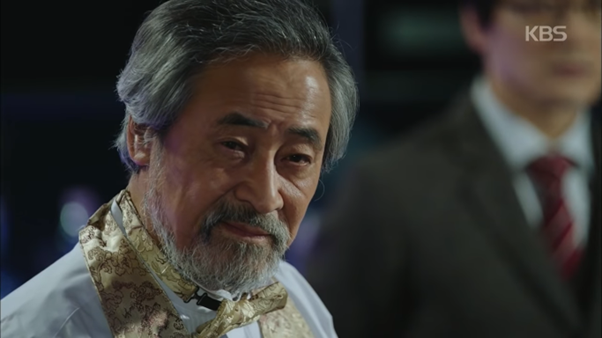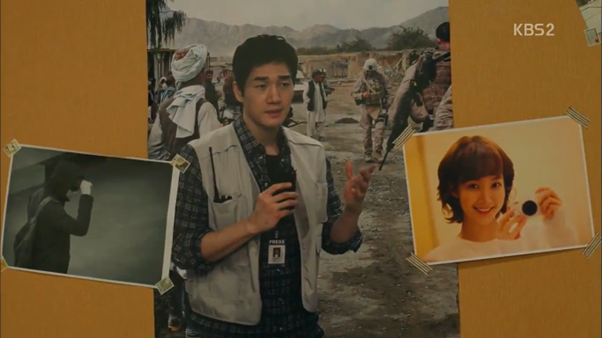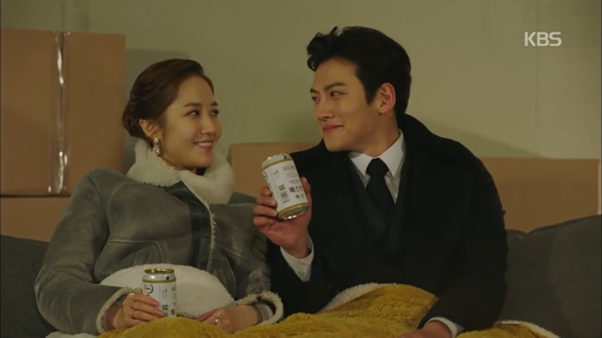(For Ayan, Daisy and Turtie – sorry I couldn’t find a way to work Mr Slime into this.)
Last year, I hosted a rewatch of the 2015 Korean drama Healer with a few of my friends, and my renewed grasp on the show has left me eager to write about it since! Even though it was incredibly popular among international drama fans when it aired, it’s funny how much of the show has been forgotten, so I want to explore what remained in people’s memories, what didn’t, and why.
Healer is a show about a “nighttime errand boy”, in other words, an action man for hire. He’s been let down by people his whole life, and his only goal is to make enough money to buy himself a deserted island, where no-one can ever bother him again. Healer is also a show about five friends who ran an illegal radio broadcast in the 80s, and how the incident that tore them apart has reverberated through the generations and is continuing to hurt their children.


I very rarely see people talk about the second part of this story, even though I think honestly think it’s one of the most powerful narratives put to screen. Once you’re familiar with the five and how they relate to the present day characters, watching their stories unfold into tapestries of hope and hopelessness is mesmerising. This aspect of Healer is an exploration of how our choices bear more weight than we are prepared for, how the tremors continue to be felt after decades have passed. I’m inclined to think it’s the best part of the show… When it wants to be.
The plot is one of two halfs, like I said. On one hand we have this bold and beautiful saga about the children of freedom fighters and intergenerational trauma… and on the other we have the takedown of an old man in a sparkly vest, serving cocktails to (and puppeting) other old men. Unfortunately, in order to experience the show at its best, to soak up what it has to say about family and identity and justice, you also have to deal with boring politicians killing each other.

Healer‘s strongest attributes are its primary characters, who ground the campy story and make it engaging. Strong characterisation, I’ve found, sticks with people far longer than intricate plots. People still remember Jeong-hoo the angsty loner, and Young-shin the bright and doggedly brave woman he falls in love with. They might even remember Moon-ho, our favourite patronising but well-meaning sad uncle.

(And of course, they remember Hacker Ahjumma, aka the best Kim Mi-kyung character ever.)

Through the main three characters, we see the best execution of the “we knew each other as children” trope. That’s a fact, and you cannot change my mind. I’m used to this trope being thrown into shows at the last minute to manufacture a sense of fatefulness between the main couple – weirdly, the otherwise forgettable Cinderella and the Four Knights comes to mind here – and so I hate it for the same reason I hate the reincarnated lovers trope. It’s lazy.
Not here though! Healer is a beautifully crafted tangle of relationships between people made into strangers by tragedy. One lucky coincidence is all it takes to bring them all back into each other’s lives, and the slow burn of the characters catching up with us is delicious. The connection it creates between Jeong-hoo and Young-shin feels earned; the sleepover scene is evidence enough that the writers did the groundwork to make this satisfying for viewers (sorry, couldn’t find a logoless screenshot, it’s in episode 4).
Obviously, the most celebrated aspect of Healer is the spy romance, but while we swooned back in 2015 at the blindfolded kisses and protecting from afar, my friends were a lot less kind to the “stalkeriness” of the romance this time around.

Now, I realise that dissecting romcom tropes is the majority of what I do with this blog, but on this occasion I’m going to leave the heavy lifting to someone else. If you’re interested to delve into the history of stalking in romance stories, I recommend you watch the Pop Culture Detective’s ‘Stalking for Love’, which explains how rooted it is in pop culture better than I ever could. The specific facet of it that is relevant here appears about 4 minutes in: the fact that this trope is particularly widespread across superhero narratives, where the hero’s attention to a woman can be romanticised if he is protecting the woman from danger. So is this applicable to Healer?
I’m not sure others would agree with me, but this is my stance: She likes it, so how can it be problematic? The definition of a stalker, after all, is that they’re unwelcome, and Young-shin is very much into having a long-distance romance with a faceless black knight. Outside of that uncomfy bedroom scene, I’d say people are misreading this situation.


The problematic bit isn’t that Young-shin is being watched, it’s that she doesn’t realise her protector has two faces. Jeong-hoo is working with her under a different identity; this way he can get closer to her, but he’s not too close. There are definitely ickier examples of the mistaken identity trope, but still, his feelings are protected while hers are pulled in all directions. I understand people not enjoying that.

That said, it would be in bad faith to criticise Healer for this. A large aspect of this love story is addressing the selfishness of Jeong-hoo’s extended deception, and focusing on how the couple can move past it. I feel like sometimes people get caught up in certain narratives – “Healer is problematic because Jeong-hoo stalks Young-shin!” – and forget to think about context. I admit, I’m talking less about Healer here and now thinking more broadly at how drama-related discourse goes sometimes. I’m reminded, for example, of the discourse around Love Alarm 2, where the Song Kang stans denounced it because his character didn’t end up with the heroine, ignoring how natural that narrative progression felt. It’s just something to think about.
Anyway, the actors! This is, without competition, the best Ji Chang-wook role. It’s the only one, I would argue, where he was able to play to all his strengths – Jeong-hoo’s prickly, tortured, goofy blend of charisma was made for him. My friends also had to tolerate me punctuating every excellent action scene with “Hey! Did you know he did all his own stunts??”, which is a fair testament to how impressive he was in that kind of role. This is also the most alive Park Min-young has ever felt in a role. Young-shin is a far cry from the polished office lady roles she’s settled into over the last decade – raggedy, full of false bravado, and endlessly charming. She sparkles with imperfection, unselfconscious, and it’s a shame she hasn’t performed like this since.

Time has only improved my opinion of Healer. It was already a high opinion, for sure, but rewatches have proved that this drama is a perfect storm of career-defining performances, spellbinding romance and a gorgeous one-of-a-kind story to tell. It’s a cultural moment that won’t come around again.

Great review Frabby, honestly the rewatch together was so much fun!!! It’s okay, Mr Slime will live on in our memories!!
The storyline I enjoyed the most is uncovering what happened all those years ago and righting the wrongs of the past. I remember feeling very conflicted about Moon-ho, were his methods were any better than his brothers?
LikeLiked by 1 person
Pingback: My Favourite Dramas of 2022 – Crabby For Dramas
Pingback: In Defence of the Amnesia Trope – Crabby For Dramas